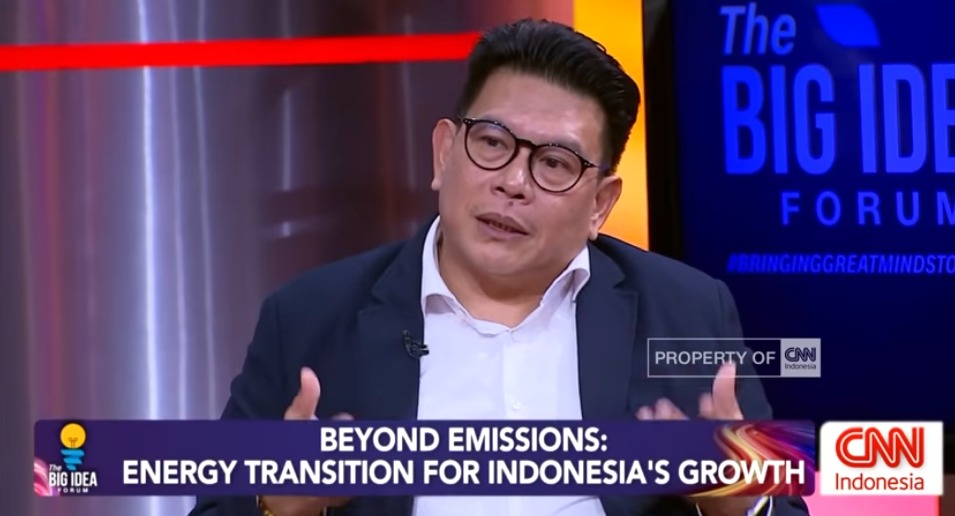Jakarta, August 21, 2025 – The government plays a crucial role in accelerating the energy transition in Indonesia. In addition to creating programs that support renewable energy development, the government must also provide incentives for companies and the public to invest in renewable energy technologies. One program worth considering is the Rooftop Solar Power Plant (PLTS) program combined with an energy storage system. This initiative provides an opportunity for households to become their own energy producers. This was stated by Fabby Tumiwa, Chief Executive Officer (CEO) of the Institute for Essential Services Reform (IESR), at CNN Indonesia’s The Big Idea Forum, titled “Beyond Emissions: Energy Transition for Indonesia’s Growth.”
“Indonesia has enormous renewable energy potential, especially solar energy. With its vast land area and abundant sunshine, Indonesia has the opportunity to become a country with a 100% clean and renewable energy system. Rooftop solar power plant (PLTS) technology can be one solution to support this transition. With the right technology and policy support, rooftop PV systems can generate enough energy to meet the electricity needs of households and industry,” said Fabby.
Furthermore, Fabby stated that achieving high renewable energy targets requires efficient and affordable energy storage technology. The use of batteries and other energy storage systems can help store energy generated by PV systems for use during peak consumption or when renewable energy production declines.
“Furthermore, the government needs to provide adequate financing to support renewable energy projects. As is well known, financing is one of the major challenges in the energy transition. The cost of building and operating renewable power plants requires significant investment, and if financing is insufficient, the projects can become financially unviable,” said Fabby.
According to Fabby, to overcome financing challenges, the public and private sectors must work together. The government can use public funds to support energy transition projects, such as the construction of renewable energy infrastructure and the development of new technologies. On the other hand, the private sector also needs to be involved by providing attractive incentives to invest in renewable energy.
“One way to address the funding issue is to restructure fossil fuel subsidies. These subsidies can be redirected to fund the development of more efficient and environmentally friendly renewable energy sources. This way, the costs of the energy transition can be offset by the long-term savings generated from reducing fossil fuel use,” said Fabby.
Fabby stated that investment in renewable energy will also support Indonesia’s economic growth. Furthermore, this transition can create new jobs in the renewable energy sector. From infrastructure development to the operation of renewable power plants, this sector offers numerous opportunities for the local workforce, which in turn can help reduce unemployment.
“On the other hand, the success of the energy transition depends heavily on the readiness of the domestic industry. Renewable energy technologies, such as solar and wind power plants, require support from local industries capable of producing these components. Therefore, developing domestic industrial capacity must also be part of the energy transition plan,” Fabby emphasized.

